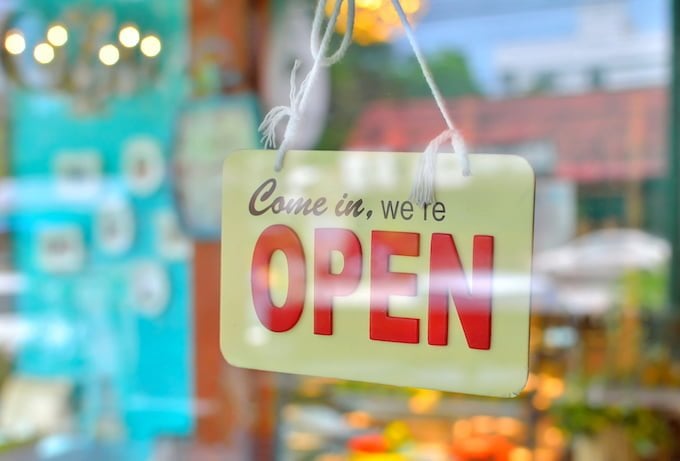What Does It Really Mean to Shop Locally?
When you shop at independent or local-to-you businesses, more money is kept within your community because local businesses often use or buy from local service providers, farms, and companies. Buying locally helps grow other businesses as well as your region’s tax base.
Table of contents
“Shop Local!” is a cry heard from green-minded folks during all seasons, and as holiday gifting approaches, the exclamations seem to get louder. But what does “buy local” mean, exactly?
If Target is three miles from my house, does that mean I’m shopping locally?
Does buying from my local supermarket count as “local?”
Shopping for holiday gifts from Etsy generally qualifies as shopping small. Does it have the same impact as shopping locally? (See below for how it can be both.)
And, probably the biggest question during these tough economic times… WHY should I shop locally when I can get a product cheaper at a chain retailer?
What Does it Really Mean to Shop Locally?
Simply put, shopping locally is buying from a local business instead of going to a large retailer. Some examples are:
- Buying seasonal foods or handmade jewelry and soaps at your area’s farmers market
- Eating at independently owned restaurants instead of fast food or chain restaurants
- Shopping at your local hardware store rather than a big box store
- Supporting local artisans who make candles, soap, handcrafted jewelry, furniture, etc.
- Buying from independent book sellers instead of online or mega retailers
- Using local craftspeople to repair or refurbish furniture or broken items you otherwise might have thrown away
The Shop Local/Shop Small trend helps cultivate relationships within the community. Especially during tough economic times, it’s a win – win for everyone involved. And it’s a lovely feeling to know you’re supporting your neighbors.
When buying from people and businesses you trust, shopping becomes more meaningful because you know the people behind the products.
The Benefits of Shopping Locally
Not only does buying local help your community… it’s also kinder to the planet. All that “made in China” stuff might be cheap, but the shipping, packaging, and carbon dioxide emissions are costly in the long run to our health and our environment.
Very often, when you shop small, what you buy is unique. There’s something very special when you give a thoughtful gift that’s also one of a kind or has a story behind it.
The National Federation of Independent Businesses says Small Business Saturday is the most important shopping day of the season for 36% of independent retailers. Only 24% of these businesses say Black Friday is more important.
Civic Economics conducted a study for Independent We Stand showing that shoppers returned seven times more money to their local economies when they bought home improvement products locally in comparison with buying the same items from Amazon.
And if we’re being honest, do we really need to put more money into the pockets of billionaires?
How to Buy Local
The reason for the Buy Local movement can really be summarized in four simple steps…
Shop Small
Think INDEPENDENT businesses when you think of shopping small. Boutique or consignment clothing stores, toy stores, gift shops, hardware stores, salons/spas, restaurants, and sports equipment stores are just a few examples of owner-run businesses where you can find great gifts.
Maybe you don’t live in a metro area with many options, in which case, local craft fairs and Etsy are perfect places to look for something special. To use Etsy for local shopping, simply do a search for sellers in your area. I once found a soap maker in my town who made the most beautifully-scented body products inspired by local attractions. A double local win!
Spend Locally
Where do your dollars go when you spend them? According to American Independent Business Alliance (AIBA), there is something called the “Multiplier Effect” that doesn’t get mentioned enough in the Shop Local movement.
“The multiplier effect is the boost to your local economy that results from locally-owned independent businesses, owners, and employees spending business revenue within the region.” In a number of studies illustrated on AIBA’s site, a proven 48% return to the community occurs when you spend locally, versus a 13.6% return when shopping chain retail.
You’ll also enjoy a higher quality product in most cases when supporting your local small businesses. Products from overseas are often cheap for a reason; they skimp on quality and often humane working conditions.
Eat Locally
Don’t underestimate the amount of dollars spent on food, beverages, and restaurant visits during the holidays. Those dollars can be viewed as an investment in your community!
Investigate local butchers, shop your farmer’s market, check for signs in larger grocery stores that carry certain sections of items from local growers, support small wine and liquor stores, and frequent independent restaurants. An impressive 65.4% returns to your community when you eat at a local restaurant versus a chain.
Enjoy Your Local Surroundings
Think like a tourist. If you were vacationing in your town, what would you seek out? Check with your Chamber of Commerce for holiday activities, consult school and community calendars, and read up on events hosted by local clubs, the library, or civic organizations.
Keeping these basics in mind during the holidays will guarantee you’re doing your part to support your community, and that you’ll see the benefits of that support in the coming year!
And how about setting a New Year’s Resolution to shop locally at least once a week throughout the year? The more people taking small steps can really change our communities.
This article was originally published in 2013 and updated in 2023.


